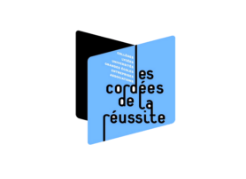Temos um Propósito Global
Contribuir para levar educação socioemocional para 50% da população mundial até 2050
AssistaComo


Nossas Soluções


Programa
Empresas


Programa
Escolas

nosso propósito
Educação para mudar o mundo
Somos a 50-50 SEL Solutions Aprendizagem Socioemocional. Nosso propósito define nosso nome.
50-50 expressa o propósito de parceria, de colaboração, de fazer junto, de esforço compartilhado meio a meio;
50-50 expressa uma meta: contribuir para levar educação socioemocional para 50% da população mundial até o ano de 2050;
SEL: Aprendizagem Social e Emocional (Social Emotional Learning, em inglês). Sigla internacionalmente reconhecida para as ações de educação socioemocional.
A 50-50 SEL Solutions é uma organização que estabelece parcerias para o desenvolvimento socioemocional. Propõe uma ação global, em diferentes culturas, com a meta de contribuir para chegar a 50% da população mundial até o ano de 2050. Com o apoio da tecnologia que rompe fronteiras e com fortes parcerias, chegaremos lá.

Unesco: A educação socioemocional é a variável mais importante para que os alunos aprendam mais e melhor.
Pesquisa realizada com 54 mil estudantes participantes de um programa
de educação socioemocional em 14 países da américa latina concluiu que:

O desempenho em linguagem melhorou em

O desempenho em matemática melhorou em

Propósito alinhado com as principais organizações internacionais
Este alinhamento reforça a iniciativa da 50-50 SEL Solutions em busca de uma ação global.





Empresas Parceiras
Conheça as empresas que acreditam e utilizam nossas soluções.








O que dizem sobre nós
Ir. Adair Aparecida SbergaGostei demais do curso “Emoção: Energia Vital” e considero super apropriado para os educadores. Apesar de já ter estudado sobre habilidades e competências socioemocionais, o modo da abordagem foi bastante rico e as lições e metáforas apresentadas pelo Professor João foram de muita sabedoria, assim como os textos e vídeos complementares. Agradeço e felicito por este trabalho em vista de uma humanidade mais feliz, acolhedora, solidária e inclusiva.
Adriana TiagoA liberdade e flexibilidade de cada aluno estudar na hora mais apropriada. Teve dias que escutei os vídeos caminhando na esteira da academia.
Ana Paula Costa e SilvaO curso tem uma estrutura didática envolvente, que cria condições favoráveis ao aprofundamento dos temas, reflexões críticas e prospecções criativas, no sentido de estabelecer pontes entre os temas abordados, as práticas educativas e as relações interpessoais nos diversos espaços de convivência.
Charla DantasO curso de “Emoção: Energia Vital”, me presenteou com a oportunidade de ampliar os meus conhecimentos. A experiência de vivenciar cada etapa foi indescritível, quanto mais escutava as explicações do mestre tão humilde e sábio, João Roberto, mais estudava os conteúdos e acessava o BeNow, sentia o desejo de seguir em frente. A didática utilizada é genial!

De quem é a culpa pelo fracasso escolar?

Precisamos falar sobre violência escolar: por que os casos de ataques a escolas têm aumentado no Brasil?



